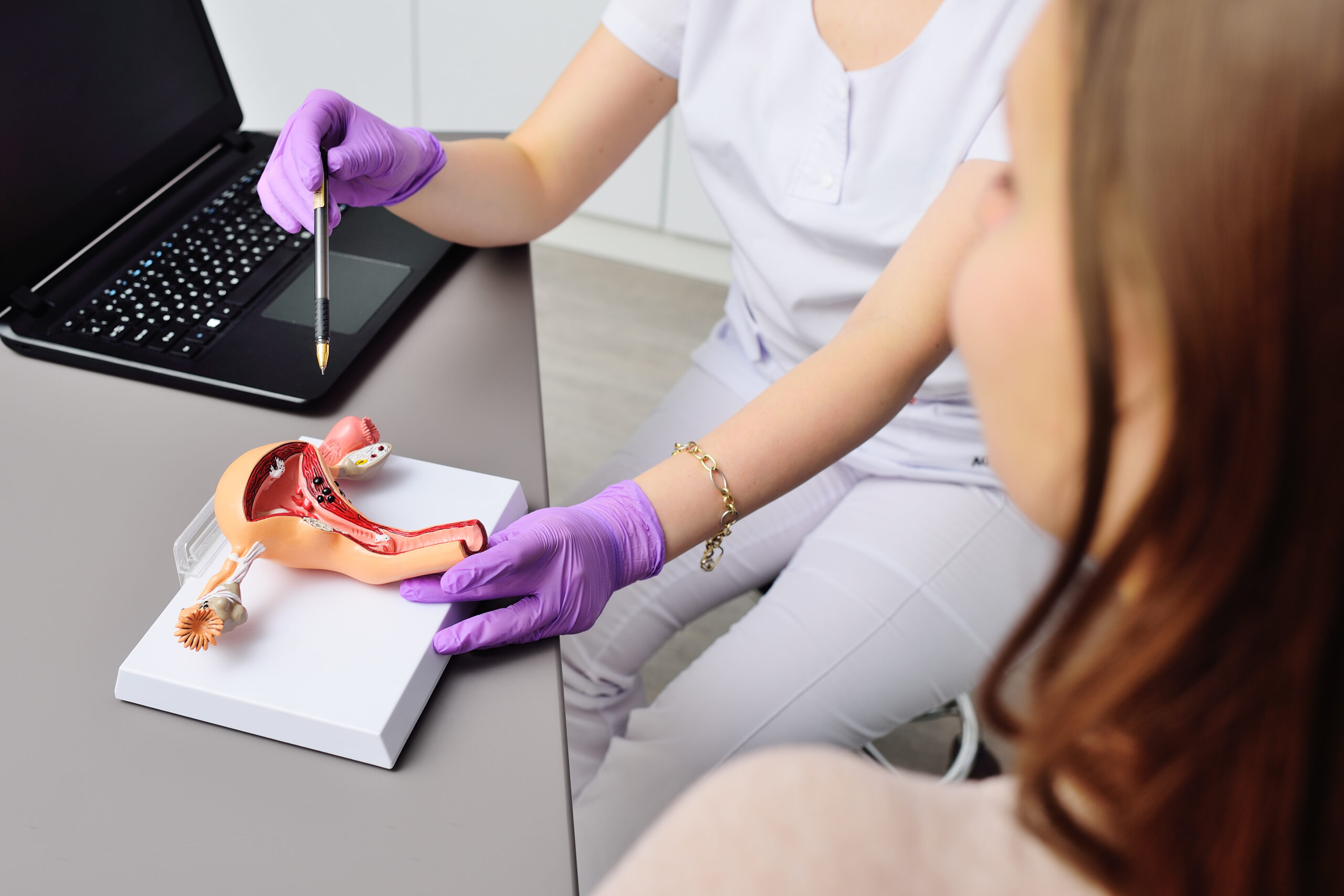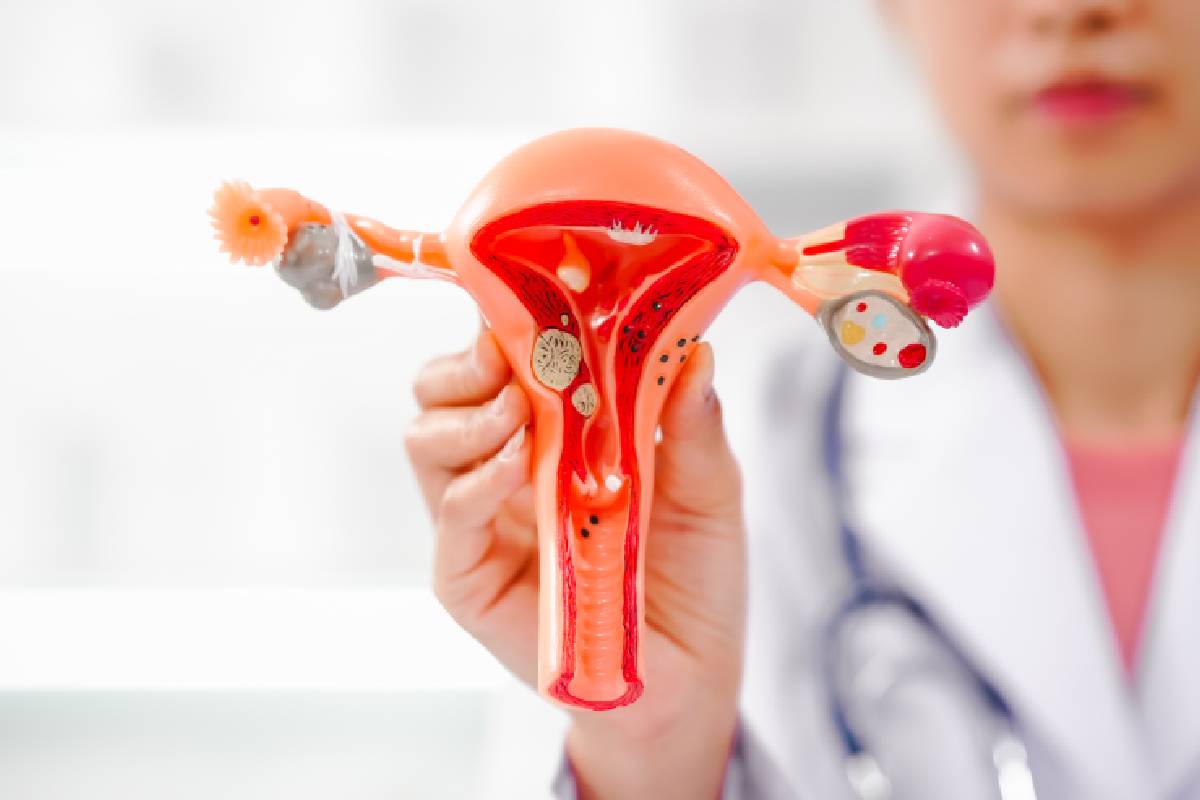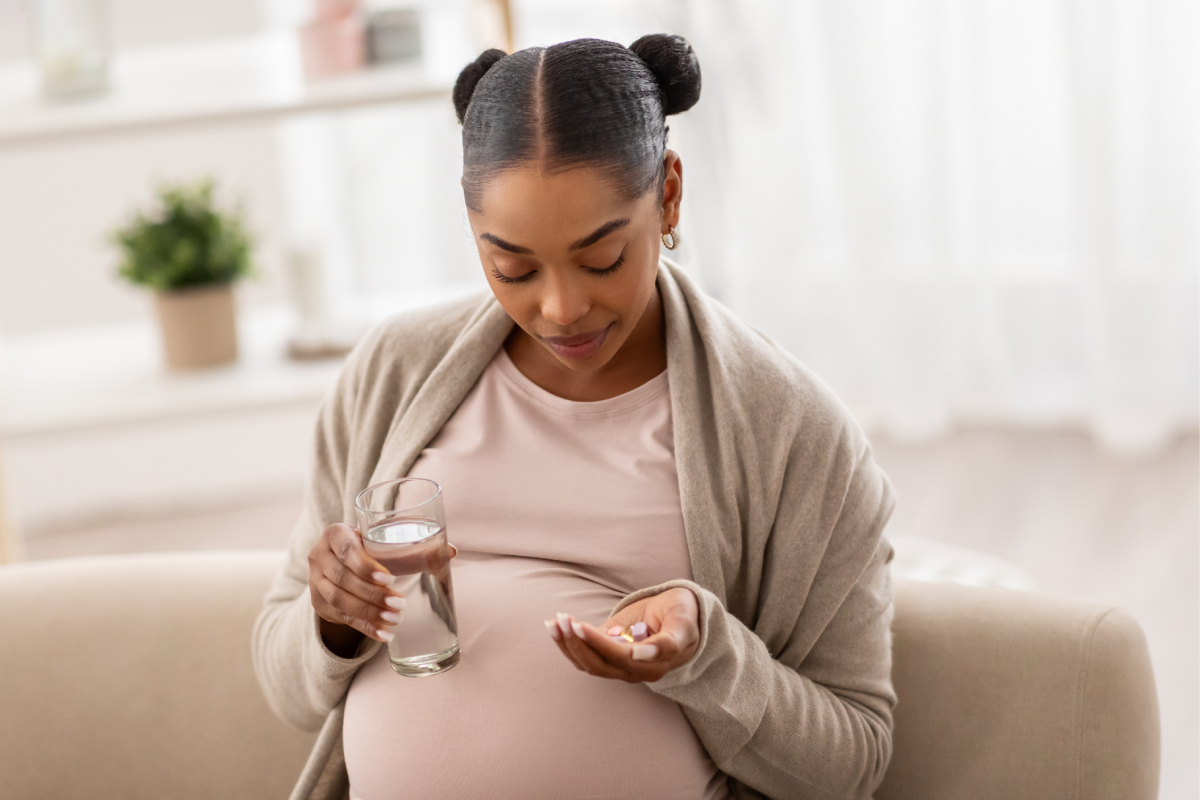
PCOS and Endometriosis often go undiagnosed or misdiagnosed for years, leading to frustration, untreated symptoms, and delays in fertility care. At A Woman’s Place in Naples, FL, we take these conditions seriously and are dedicated to providing timely, accurate diagnoses and supportive care.
Polycystic Ovary Syndrome (PCOS) affects an estimated 1 in 10 women of reproductive age. It is characterized by:
- Irregular or absent periods
- Elevated androgen levels (male hormones)
- Polycystic ovaries seen on ultrasound
Endometriosis, which occurs when uterine-like tissue grows outside the uterus, affects about 1 in 10 women globally as well. Symptoms often include:
- Painful periods
- Pain during intercourse
- Pelvic pain outside of menstruation
- Infertility
Though different in origin, PCOS and endometriosis often coexist, making diagnosis and treatment more complex. One study found that women with PCOS have a higher incidence of endometriosis, and vice versa. Both conditions are hormone-related and can cause chronic inflammation and metabolic issues.
Unfortunately, these conditions are often misdiagnosed as “normal period problems” or dismissed altogether. On average, it takes 7–10 years to receive a diagnosis for endometriosis. Many women are told that their symptoms are “in their head” or simply part of being a woman.
When untreated, PCOS and endometriosis can significantly impair fertility. PCOS disrupts ovulation, while endometriosis can cause scarring and damage to the fallopian tubes or ovaries.
At A Woman’s Place, we use a combination of patient history, ultrasound, hormone testing, and sometimes laparoscopic surgery to make an accurate diagnosis. Treatment plans are personalized and may include:
- Hormonal birth control to regulate cycles and suppress endometrial tissue growth
- Metformin to improve insulin sensitivity in PCOS patients
- Anti-androgen medications for excess hair growth or acne
- Pain management strategies including NSAIDs and physical therapy
When it comes to endometriosis treatment, we offer a spectrum of options depending on your symptoms, fertility goals, and overall health.
Mild to moderate cases may respond well to hormonal therapies, including:
- Oral contraceptives to reduce menstrual flow and lessen endometrial growth
- Progestin therapy to suppress menstruation and shrink endometrial lesions
- GnRH agonists or antagonists, which lower estrogen levels and induce a temporary menopausal state to limit endometrial tissue activity
For more severe or persistent endometriosis, or when fertility preservation is a goal, laparoscopic excision surgery is often recommended. This minimally invasive approach allows a surgeon to locate and remove visible endometrial implants, adhesions, and cysts while preserving healthy tissue. Compared to ablation, excision is more effective at reducing pain and improving fertility outcomes.
Some women may benefit from complementary therapies like pelvic floor physical therapy, anti-inflammatory diets, or acupuncture as part of a holistic approach to managing symptoms.
If you’ve experienced chronic pelvic pain, irregular periods, or fertility challenges, it’s time to get answers and relief. We are committed to helping women understand their symptoms and receive the care they deserve.
Schedule a consultation with A Woman’s Place in Naples, FL today: https://www.awpnaples.com/portfolio-items/gynecologic-surgery/
Further Reading
https://www.healthline.com/health/womens-health/endometriosis-vs-pcos#prevalence
PCOS and Endometriosis often go undiagnosed or misdiagnosed for years, leading to frustration, untreated symptoms, and delays in fertility care. At A Woman’s Place in Naples, FL, we take these conditions seriously and are dedicated to providing timely, accurate diagnoses and supportive care.
Polycystic Ovary Syndrome (PCOS) affects an estimated 1 in 10 women of reproductive age. It is characterized by:
- Irregular or absent periods
- Elevated androgen levels (male hormones)
- Polycystic ovaries seen on ultrasound
Endometriosis, which occurs when uterine-like tissue grows outside the uterus, affects about 1 in 10 women globally as well. Symptoms often include:
- Painful periods
- Pain during intercourse
- Pelvic pain outside of menstruation
- Infertility
Though different in origin, PCOS and endometriosis often coexist, making diagnosis and treatment more complex. One study found that women with PCOS have a higher incidence of endometriosis, and vice versa. Both conditions are hormone-related and can cause chronic inflammation and metabolic issues.
Unfortunately, these conditions are often misdiagnosed as “normal period problems” or dismissed altogether. On average, it takes 7–10 years to receive a diagnosis for endometriosis. Many women are told that their symptoms are “in their head” or simply part of being a woman.
When untreated, PCOS and endometriosis can significantly impair fertility. PCOS disrupts ovulation, while endometriosis can cause scarring and damage to the fallopian tubes or ovaries.
At A Woman’s Place, we use a combination of patient history, ultrasound, hormone testing, and sometimes laparoscopic surgery to make an accurate diagnosis. Treatment plans are personalized and may include:
- Hormonal birth control to regulate cycles and suppress endometrial tissue growth
- Metformin to improve insulin sensitivity in PCOS patients
- Anti-androgen medications for excess hair growth or acne
- Pain management strategies including NSAIDs and physical therapy
When it comes to endometriosis treatment, we offer a spectrum of options depending on your symptoms, fertility goals, and overall health.
Mild to moderate cases may respond well to hormonal therapies, including:
- Oral contraceptives to reduce menstrual flow and lessen endometrial growth
- Progestin therapy to suppress menstruation and shrink endometrial lesions
- GnRH agonists or antagonists, which lower estrogen levels and induce a temporary menopausal state to limit endometrial tissue activity
For more severe or persistent endometriosis, or when fertility preservation is a goal, laparoscopic excision surgery is often recommended. This minimally invasive approach allows a surgeon to locate and remove visible endometrial implants, adhesions, and cysts while preserving healthy tissue. Compared to ablation, excision is more effective at reducing pain and improving fertility outcomes.
Some women may benefit from complementary therapies like pelvic floor physical therapy, anti-inflammatory diets, or acupuncture as part of a holistic approach to managing symptoms.
If you’ve experienced chronic pelvic pain, irregular periods, or fertility challenges, it’s time to get answers and relief. We are committed to helping women understand their symptoms and receive the care they deserve.
Schedule a consultation with A Woman’s Place in Naples, FL today: https://www.awpnaples.com/portfolio-items/gynecologic-surgery/
Further Reading
https://www.healthline.com/health/womens-health/endometriosis-vs-pcos#prevalence











